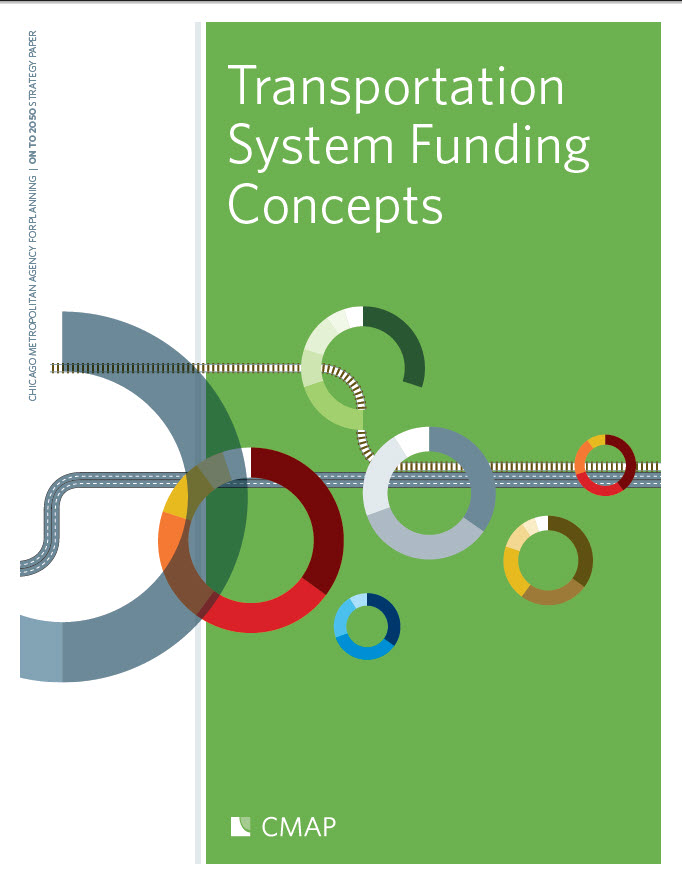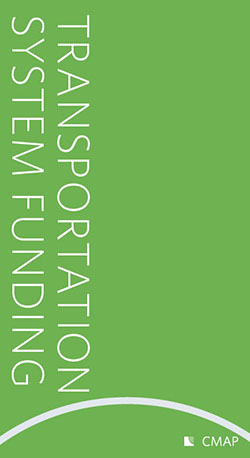Transportation System Funding
Update: The Transportation System Funding Concepts ON TO 2050 strategy paper is now available, and your feedback is welcome. Please take a moment to answer the questions below or send your thoughts, ideas, or questions to ONTO2050@cmap.illinois.gov.
Current transportation funding is not adequate.
Revenue forecasts indicate that metropolitan Chicago will barely have enough funding to maintain and operate its existing roads, bridges, and transit systems. At the same time, the region must expand and modernize the system to relieve congestion and serve population and job growth.
Traditional revenue sources are insufficient to make these investments in the transportation system. For example, motor fuel tax revenues have been declining in recent years due to improvements in vehicle fuel economy and stable vehicle travel, which together have reduced motor fuel purchases. The region must enhance its existing revenue streams and implement new revenue sources to support transportation investments.
There are multiple strategies that could ensure adequate transportation system funding.
New funding strategies are needed to ensure the long-term sustainability of the transportation system, which is a major contributor to the economy and livability of northeastern Illinois. The region must work collaboratively to identify and implement the funding strategies that will protect and enhance its transportation assets.
Funding strategies may include an alternative to the state motor fuel tax, variable transit fare pricing, and cost-saving efficiencies. Other approaches, like congestion pricing and express toll lanes, could raise revenue from both existing and new expressways, while managing demand. In addition, innovative financing strategies for specific transportation projects might include value capture and public-private partnerships.
How ON TO 2050 can help enhance transportation system funding.
In its financial plan, ON TO 2050 will forecast the revenue necessary to maintain, operate, enhance, and expand the transportation system. Further, this financial plan will outline future policy changes that will generate additional revenues and promote efficiencies, ensuring that funds are available to bring the transportation system toward a state of good repair and to enable system enhancements and expansions. Recommended policy directions in ON TO 2050 will be evaluated, selected, and prioritized with input from public and private partners.
This is your plan.
Continual input by stakeholder organizations and individuals was vital to the development and implementation of GO TO 2040. From now through the next plan's adoption in October 2018 and beyond, CMAP will be engaging a broad cross-section of partners from across the region.
Take a moment to fill out the questions below, and for more information on CMAP's public engagement efforts, please visit www.cmap.illinois.gov/get-involved.

